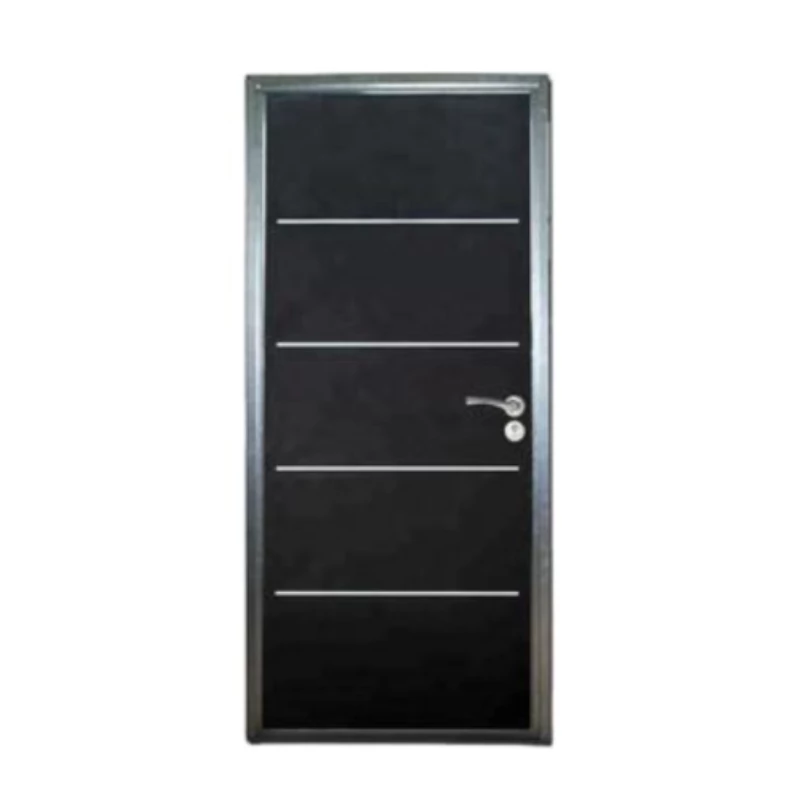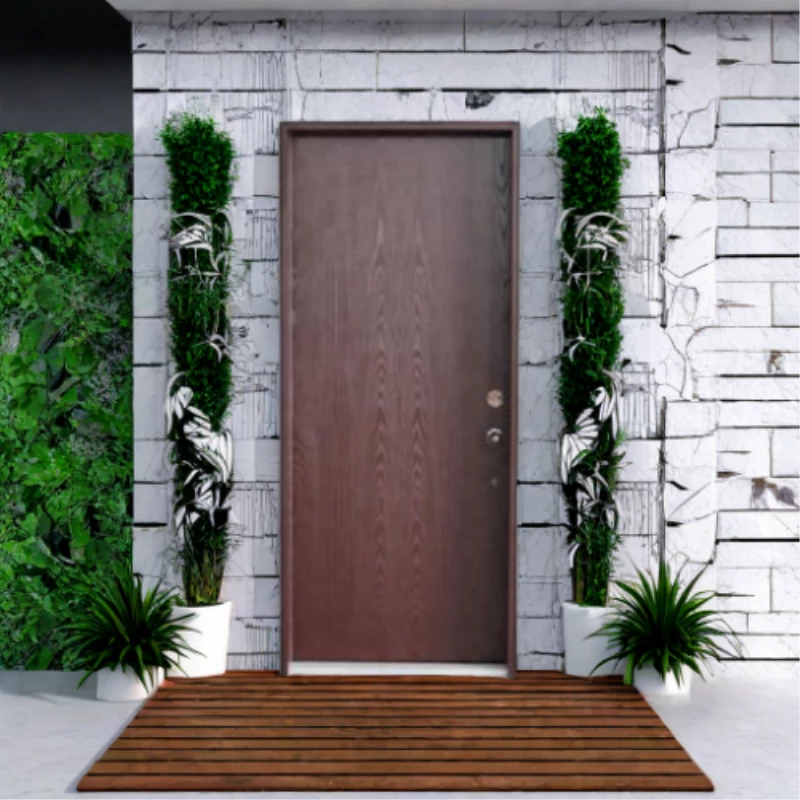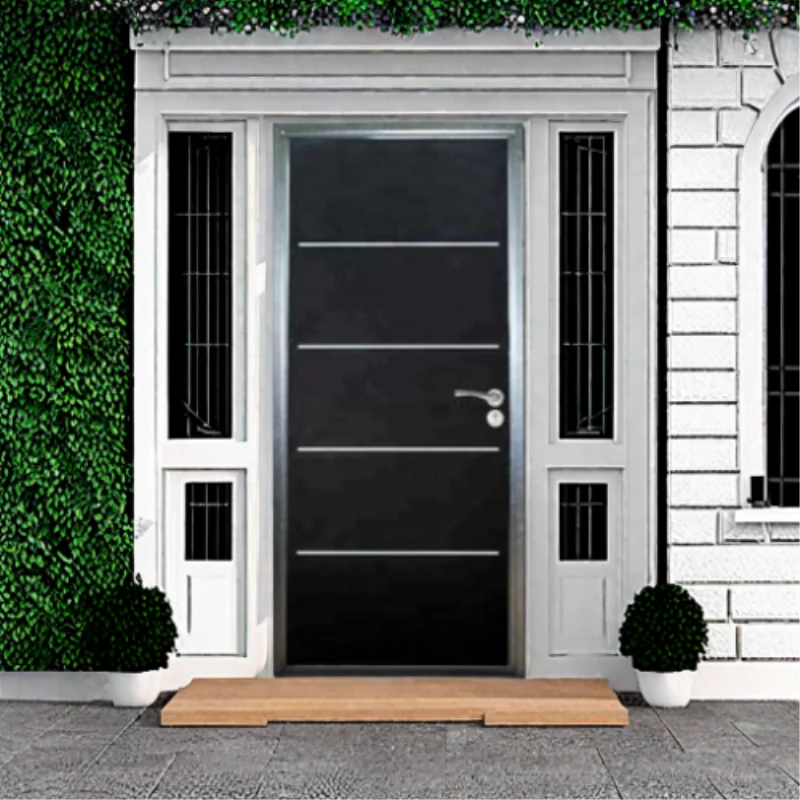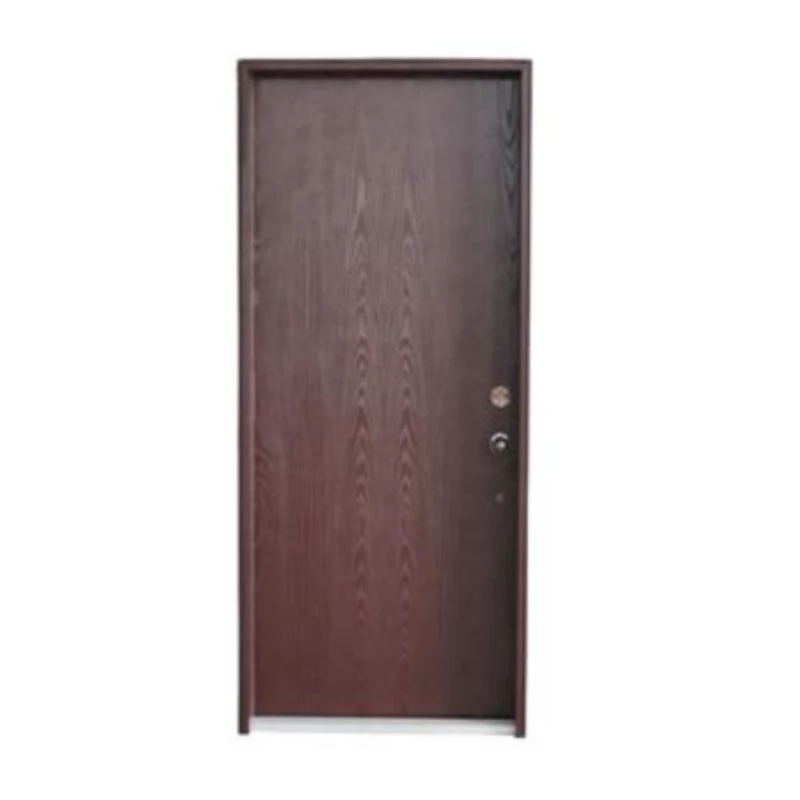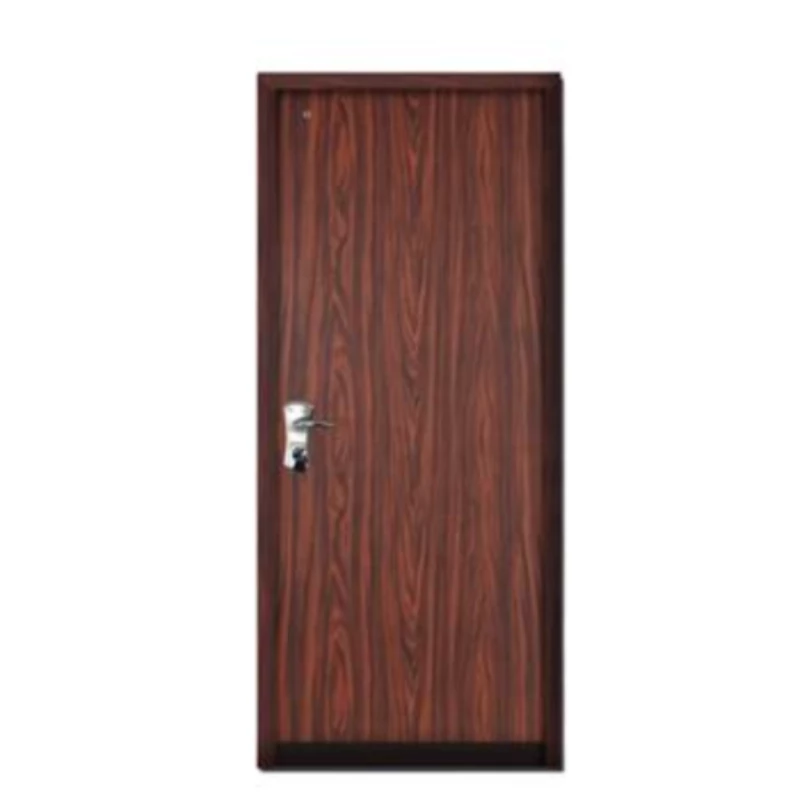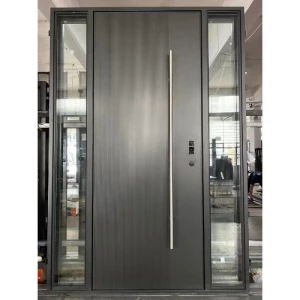High Quality Israeli Residential Security Doors for House
- Standard Size
- 820/880/1060/1200*2000mm or Customized Size
- Door Leaf Thickness
- 50mm or Customized Size
- Steel Thickness Of Door Leaf
- 1.1mm Accept Customized
- Steel Thickness Of Door Frame
- 1.5mm Accept Customized
- Inside Filling Material
- poly foam or rock wool
- Surface Finishing
- Finished
- Lock
- 4 ways multiple lock
- Door Material
- Steel
Will a Steel Door Rust? Exploring the Rust Resistance of Steel Doors
Introduction:
Steel doors are widely chosen for their strength, security, and durability. However, concerns about rusting often arise due to steel's vulnerability to corrosion. In this article, we will address the question of whether steel doors are prone to rust and discuss factors that contribute to their rust resistance. Specifically, we will focus on steel exterior doors, steel front doors, and steel entry doors.1. Understanding Steel's Susceptibility to Rust:
a. Composition of Steel: Steel is primarily composed of iron, which is prone to rust when exposed to moisture and oxygen. However, the presence of other elements, such as carbon and alloys, can significantly influence steel's resistance to corrosion.b. Protective Coatings: Steel doors are often coated with protective finishes to enhance their resistance to rust. These coatings act as a barrier, preventing moisture and oxygen from reaching the underlying steel surface.
2. Rust Resistance of Steel Exterior Doors:
a. Exterior Door Exposure: Steel exterior doors are exposed to the elements, including rain, humidity, and temperature fluctuations. These conditions can accelerate rusting if proper precautions are not taken.b. Galvanization: Many steel exterior doors undergo galvanization, a process where a protective layer of zinc is applied to the steel surface. This zinc coating provides excellent rust resistance and extends the lifespan of the door.
c. Powder Coating: Powder coating is another common method used to protect steel exterior doors from rust. A dry powder is applied electrostatically and then cured under heat, forming a durable and corrosion-resistant finish.
3. Rust Resistance of Steel Front Doors:
a. Front Door Exposure: Steel front doors are constantly exposed to environmental factors, including rain, sun, and temperature changes. These factors can contribute to rust formation if the door's protective measures are insufficient.b. Quality of Protective Coatings: The quality and thickness of the protective coatings on steel front doors play a crucial role in their rust resistance. High-quality finishes, such as epoxy or polyester coatings, provide excellent protection against rust and ensure long-lasting durability.
c. Maintenance: Regular cleaning and maintenance of steel front doors are essential to preserve their rust resistance. Remove dirt, debris, and moisture buildup, and promptly address any scratches or damages to the protective coating.
4. Rust Resistance of Steel Entry Doors:
a. Importance of Rust Resistance: Steel entry doors are subjected to daily use and are often exposed to moisture from rain, snow, or condensation. Ensuring their rust resistance is vital for long-term performance and aesthetics.b. Coating Integrity: Inspect the integrity of the protective coating on steel entry doors regularly. Any cracks, chips, or peeling should be addressed promptly to prevent moisture infiltration and potential rust formation.
c. Weather Stripping: Proper weather stripping around steel entry doors can help prevent water infiltration and minimize the risk of rust. Ensure that the weather stripping is intact and effectively seals the door against the elements.
Conclusion:
While steel doors are susceptible to rust, their rust resistance can be significantly enhanced through protective coatings and proper maintenance. Steel exterior doors, steel front doors, and steel entry doors can provide long-lasting performance and aesthetics when appropriate protective measures are in place. Regular inspections, maintenance, and timely repairs are key to preserving the rust resistance of steel doors and ensuring their durability for years to come. For more information, you can contact USELUCKDOOR.
Israel security doors come in various styles, materials, and finishes, offering a range of features such as advanced locking systems, weather-resistant coatings, and noise reduction capabilities. They are made from high-quality materials like steel, WPC (Wood Plastic Composite), PVC, and wood.


We have more categories for you. lf you can't find the products you want above,just fill in the form and tell us whatproducts you want to import from China.


